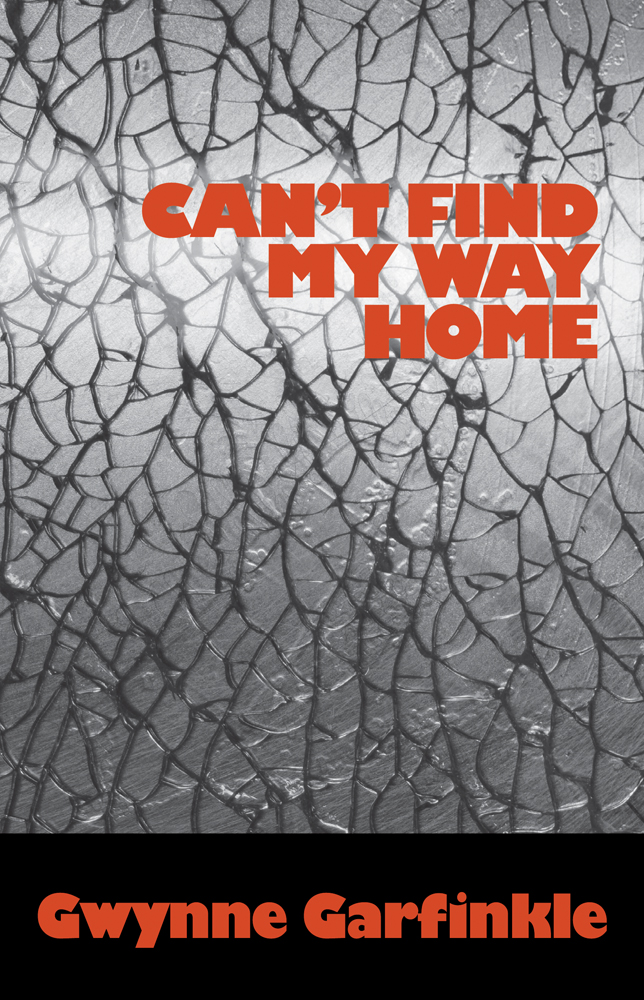Can't Find My Way Homeby Gwynne Garfinkle
Young actress Joanna Bergman has been guilt-ridden for four years. Her best friend Cynthia Foster died in a firebombing meant to protest a New York draft board near their college in 1971. Jo was supposed to accompany the charismatic Cyn on the night of the bombing but backed out at the last minute. Jo’s new life is complicated enough: she’s falling for her soap opera costar, the philandering Martin Yates, and trying to regain the sense of connection she lost when Cyn died. But then Cyn’s ghost appears, furious with Jo for bailing on her that fateful night and, worse, for going on living without her. As Jo tries to figure out what her friend’s ghost wants from her, she is hurled again and again back to the night of Cyn’s death. Advance Praise
Garfinkle catches exactly the passionate and reckless moods of the
anti-Vietnam War movement among young people in those years, the
deadly naiveté, delight in rebellion, and idealistic misunderstanding
of where events just had to go from there…. Writing a really good
ghost story is a lot harder than it looks. But Garfinkle pulls it off
with élan and produces a wonderful story about lives unlived, for one
reason or another, shifting perspectives, what (if anything) we owe
our dead, and how we reflect each other, hold each other back, and
provide the take-off for others’ sprints into maturity. ReviewsGarfinkle (People Change) delivers a fascinating, disorienting ghost story set in the 1970s. Actor Joanna Bergman has carried shame and remorse over her friend Cynthia Foster’s death since it happened four years ago. As protestors against the Vietnam War, the duo would have done anything to stop the bloodshed—but when Cynthia and Joanna plotted to blow up a New York City draft board, Joanna backed out at the last minute. Her hesitance spared her life, and Cynthia died in the explosion. Now, the war is over, and Joanna has her first stable acting gig on the daytime soap Hope Springs Eternal and is developing feelings for her costar, Martin Yates. She’s guiltily moving on with her life, until Cynthia’s angry ghost appears to her and forces Joanna to relive that fateful night, turning over alternate choices she could have made and how things might have gone differently. The tale moves swiftly between reality and the paranormal, successfully making the reader question if Cynthia’s ghost is just a projection of Jo’s psyche or something more concrete. Fans of counterculture narratives and ghost stories will want to take a look. —Publishers Weekly, 09/13/2021 I'm old enough that this somewhat nostalgic ghost story worked exceptionally well for me. The protagonist is a woman who - many years earlier - failed to go with a friend to a protest in which she died under circumstances not entirely clear. Now the ghost of her friend has appeared to her and wants closure. Although this is not a particularly original concept for a comparatively gentle ghost story, it is wrapped around a much more compelling story about the frustrations and contradictions of that era, of protesting in general. It examines how we change views on political matters - or at least tactics - over the course of time and it touches upon the tenuous but real connections we retain to friends, even those no longer alive. The protagonist is compelled to relive that fatal night over and over again, each time with subtle - or not so subtle differences. Very moving story. —Critical Mass, Don D'Ammassa, 1/15/2022
Here’s a first novel set in the early 1970s, an era when revolution
seemed to be in the air. The protagonist, Joanna, is a young college
student in New York City, friends with a group of student
radicals. Her best friend, Cynthia, recruits Joanna to help her plant
a bomb at a downtown draft board, a protest against the war in
Vietnam. But Joanna backs out at the last moment, pleading a case of
the flu. When the bomb goes off prematurely, Cynthia is killed, and
Joanna is saddled with guilt.
ISBN: 978-1-61976-212-1 (13 digit)
|

